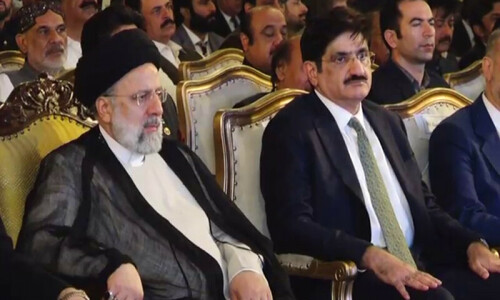
There are some heroes that are found in stories. They have no existence outside those tales. However, there are heroes in the real world too. These people have influenced their region, country and society with their abilities, dedication, and ideas. They leave their mark on people’s lifestyles and psyche in some way.
Ideally, a child finds its first heroes at home, in the form of parents. At school, a teacher replaces them. As life goes on, the child begins to consider many different people as his/her heroes. When we were younger, the textbooks had not yet been swept in the name of national interest. They contained figures belonging to various faiths, like the Parsis and Hindus who had offered great services to the humanity, education, art, literature and the nation. Children had the option to be inspired by these great figures, their works and thoughts.
Governments that came to power tried changing the school syllabi according to personal ideologies. Actually, the leaders never really had a certain ideology. Whatever slogan was deemed appropriate to the present circumstances then became the basis of their governance. During the 1965 war, army personnel became our heroes. In the following wars, whoever won the Nishan-e-Haider became our hero. That is why our heroes keep changing all the time and we have become used to having temporary heroes.
I remember that the viva was on the subject of thermodynamics but instead, we were memorising Quranic verses to pass the exam. At job interviews, it didn’t matter how much you knew about the job and the field you were applying for. You didn’t need that knowledge. Instead, it mattered if you knew the answers to the religious questions because that was the only way you could land yourself the job.
Our heroes are either those people who attacked, plundered before ruling over us or those who are not at all related to the history and culture of this soil. The fighters and plunderers were all we had left for us to be proud of. People involved in things like literature, art, philosophy, ideas, science, education and charity could not be our heroes.
The recommendations of the nation’s biggest accolades are made by the bureaucracy and the rulers. National interests are always kept in mind while deciding these matters so that no harm comes to the nation’s ideological boundaries. These awards have literally been distributed amongst themselves, relatives, and friends. The leftover awards are then distributed amongst educationists and artists that appear a lot in the chambers of power. This is the highest honour awarded to someone in this country. No matter how big a personality someone is, it is only possible to give them as much as respect as allowed by the best interests of the nation.

It’s not like we have a dearth of talented people here, but we definitely all have different priorities. We start recognising them when the world begins to recognise our artists. When Nusrat Fateh Ali Khan started singing qawwalis, he was hardly seen anywhere. But when the rest of the world began to appreciate and recognise his talent, the women of our elite class started considering it a matter of pride if they attended his concerts.
All the great personalities born on this land were hardly known while they were alive. But when they depart on their last journey, the media focus begins closing in. The television channels run stories and features about them for as long as there is no other “breaking news”. On Facebook and other social media, we cry for said personality at one moment and another in the very next moment. We think our duty fulfilled by merely updating our Facebook statuses and changing our profile pictures as a tribute.
Across the border in India, not only do they worship their heroes and look after them but they also proudly tell the rest of the world of the heroes born on their soil. They simultaneously tell their new generations about their heroes, inculcating the same respect for them that the older generations had. They keep their works and thoughts safe by transferring them to their new generation.

Iran is an Islamic country like ours where writers, poets, scientists, philosophers, designers, musicians and artists have been the heroes instead of maulvis. Their streets and squares have sculptures of the people that they are named after. These sculptures mark the locations of educational institutions and/or their last resting place. Research is done about them, and they are kept safe. Books are written and published about them, as well as bought and read by people who then try to apply their thoughts and deeds to their own lives.
We will manage to spare a thought or two for our deceased heroes in a few years, provided someone reminds us. We don’t mind celebrating their namesake holidays. The person itself doesn’t matter to us. At the most, a road or street would be named after them. What else can we do? When the fate of Karachi was in Jamaat-e-Islaami’s power, they renamed half the roads in the city after names of religious scholars. The ones who run the city now have other priorities anyway.
We have made our sports celebrities’ prolific idols of our country. Sometimes they win and become national heroes. Sometimes they lose and become the zeroes of the country. The heroes today are anchor persons of TV channels. They can be seen everywhere. The people who used to watch wrestling on TV in order to relax now watch cocks fighting on TV. The remaining ones have made people like Aamer Liaquat Hussein, the light of the path for them. Blessing and entertainment combined! What do we care for heroes, they are all enough for us.














































